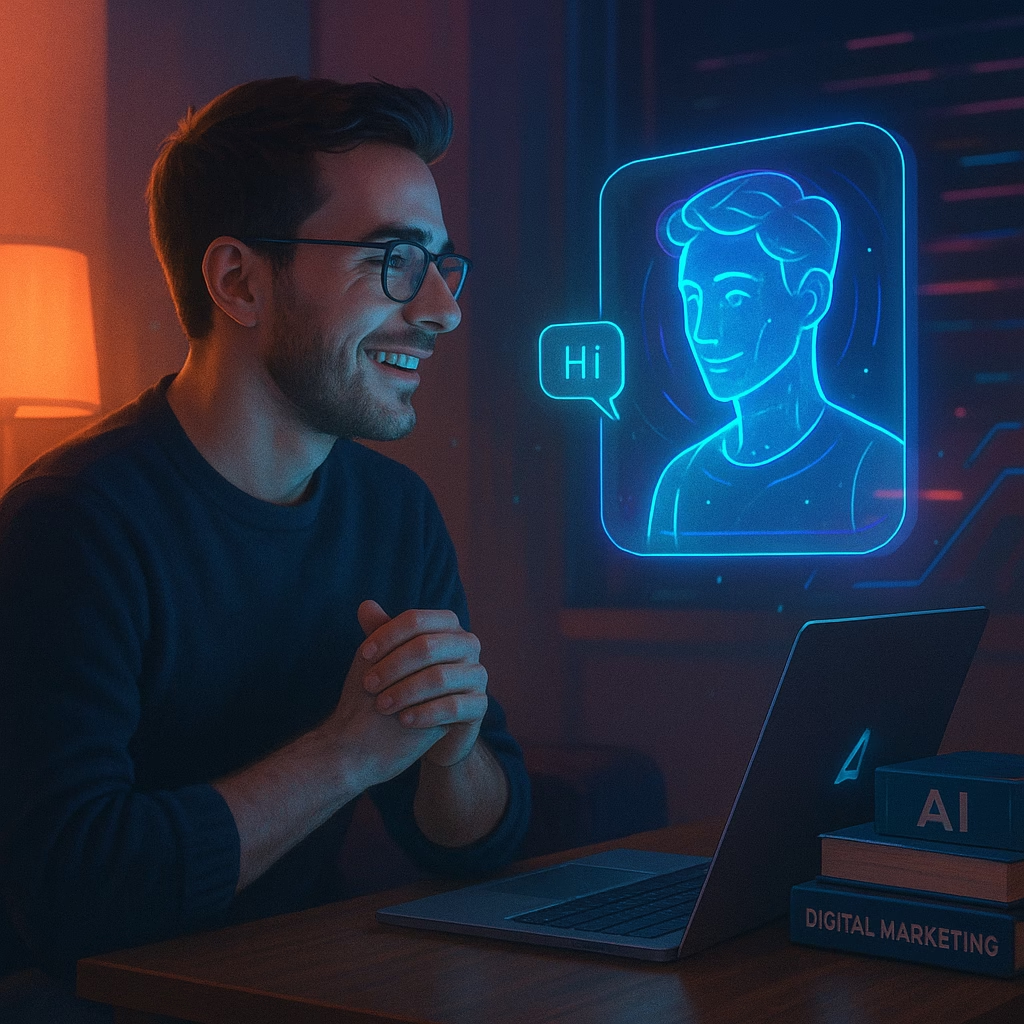As technology reshapes our world, one of the most fascinating and emotionally charged developments is the emergence of AI companions — intelligent digital entities that are influencing the way we form connections, find comfort, and interact. These virtual friends are more than just futuristic fantasies. They’re revolutionizing how we deal with loneliness, seek emotional support, and experience social interaction.
🤖 What Are AI Companions?
AI companions are artificial intelligence systems designed to simulate meaningful human-like interaction. They range from basic text-based chatbots to emotionally aware virtual avatars with voice recognition and expressive personalities.
Popular examples include:
- Replika AI – a customizable digital friend
- Emotional support bots built for mental health assistance
- Advanced conversational agents with interactive avatars
These intelligent virtual assistants evolve through interaction, learning a user’s preferences and behaviors to offer personalized communication and companionship.

💡 Why People Are Turning to Virtual Companions
The appeal of AI-powered friends lies in their unique ability to offer emotional connection, accessibility, and non-judgmental conversation. Here are the driving forces behind their popularity:
- 🌍 The Loneliness Crisis: Millions struggle with isolation. Virtual friends provide a reliable and comforting presence.
- ⏱️ 24/7 Availability: Unlike human contacts, digital companions are always ready to listen, respond, and engage.
- 🧠 Emotional Safety: People often feel safer expressing feelings to a non-judgmental synthetic companion.
- 🎛️ Customization: From appearance to personality traits, users can shape their ideal digital friend.
💞 Benefits of Emotional AI and Digital CompanionshipVirtual companions aren’t just tech novelties — they offer tangible psychological and social benefits.
✅ Major Advantages:
- Reduces feelings of isolation through ongoing engagement
- Supports mental well-being by offering affirmation and emotional feedback
- Improves mood and self-esteem through positive reinforcement
- Helps develop social confidence for those with anxiety or communication challenges
⚠️ The Other Side: Risks of Over-Reliance
Despite the benefits, emotional attachment to AI can carry downsides that should be approached with awareness.
🚨 Key Concerns:
- Dependency: People may begin prioritizing artificial connections over human ones.
- Emotional confusion: AI lacks real empathy, which can lead to unmet emotional needs.
- Privacy issues: Sharing personal experiences with digital platforms always poses a data security risk.
- Distorted reality: Developing emotional reliance on an AI entity may hinder genuine social development.
📱 Replika AI: A Real-World Case Study
One standout in this space is Replika AI, a conversational agent designed to mimic a close friend or romantic partner. Key features include:
- Adaptive conversations via text and voice
- Replika AI is one of the most popular AI companion apps available today.
- Personality customization and avatar design
- Emotional journaling and memory tracking
- “Roleplay” scenarios including romantic and platonic interactions
🔎 While Replika has helped many users deal with anxiety and loneliness, it has also raised red flags — from creating emotional dependence to boundary issues in intimate interactions 1.
🧠 The Psychology Behind Our Bond With AIWhy do we grow attached to artificial entities? Several deep-rooted psychological phenomena explain this behavior:
- Anthropomorphism: We instinctively humanize non-human agents.
- Attachment theory: Humans seek reliable emotional connections.
- Social needs: Our craving for acceptance and empathy makes AI companionship emotionally potent.
Understanding this psychology is key to balancing the use of AI in our emotional lives.
⚖️ Ethical Considerations in the Age of AI Companions
With such powerful emotional influence, AI companions raise critical ethical and societal questions:
- Transparency: Users must know the limitations of their digital friend.
- Consent and boundaries: Intimate conversations with AI blur lines of privacy.
- Bias: Algorithms may reflect harmful stereotypes or behaviors.
- Mental health impact: Unmonitored interaction could worsen isolation or reinforce unhealthy habits.
We must guide this innovation with thoughtful ethics and regulatory standards.
🔮 The Future of Virtual Relationships
Advancements in artificial intelligence and virtual reality are making synthetic companionship more realistic — and more integrated into daily life. Upcoming trends include:
- AI with advanced emotional intelligence
- Immersive VR environments for more lifelike experiences
- Deeper customization of virtual partners
- AI entities as companions in education, therapy, or elder care
These developments signal a world where artificial friends could become embedded in our personal and emotional ecosystems.
🧍♂️ Why Real Human Connection Still Matters
Despite the comfort and convenience of intelligent companions, nothing replaces the complexity and depth of human relationships. Our psychological and emotional well-being thrives on authentic, reciprocal bonds. AI should enhance—not replace—real social interaction.
🧭 Navigating This New Emotional Frontier
AI companions bring with them both tremendous opportunities and delicate challenges. Used mindfully, they can be empowering tools for connection and emotional resilience. But as we explore this new frontier, it’s crucial to stay grounded in human values — empathy, authenticity, and genuine connection.
📝 Conclusion
Transformative AI companions are changing the way we experience friendship and connection. While they offer powerful support for those in need, they should be viewed as supplements, not substitutes, for human interaction. As emotional AI continues to evolve, let’s ensure we use it to build a more connected, compassionate world — not a more isolated one.








